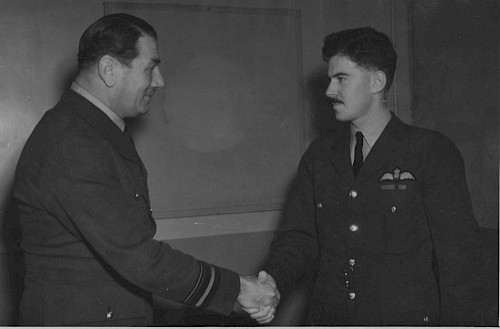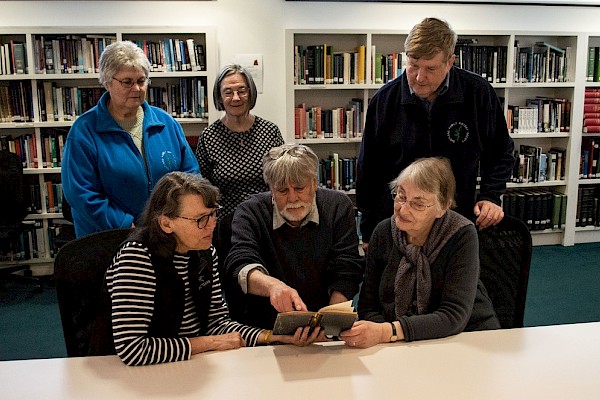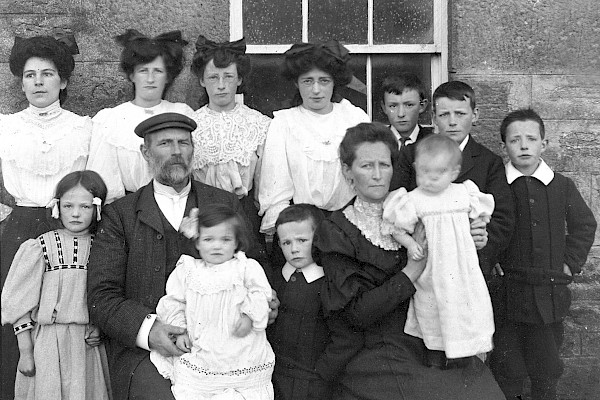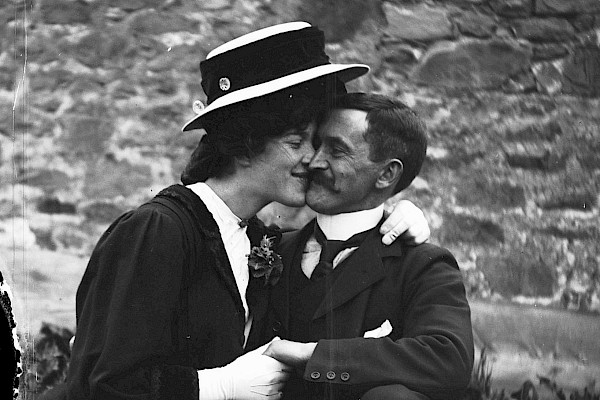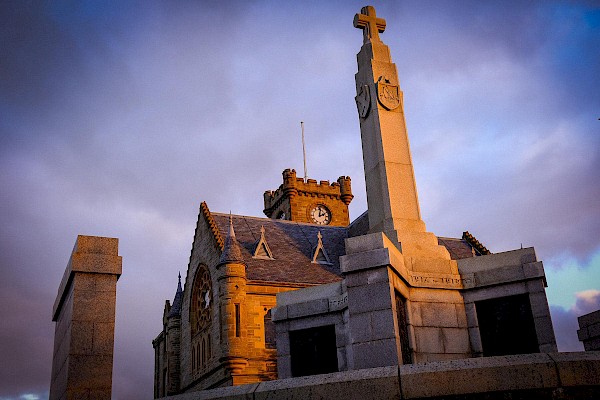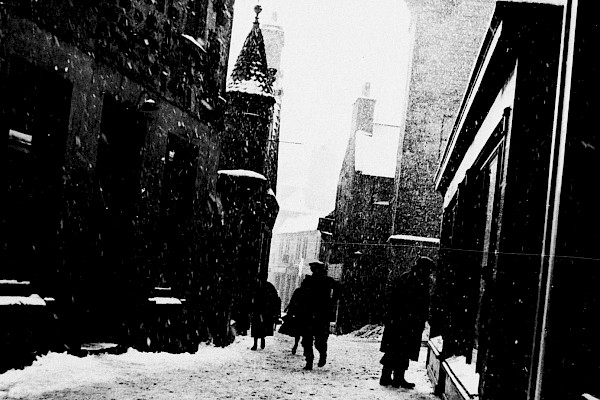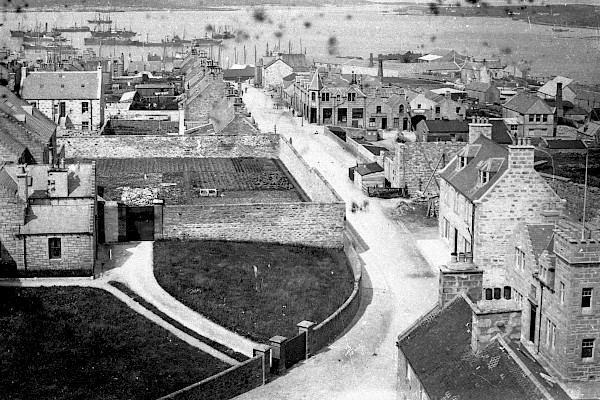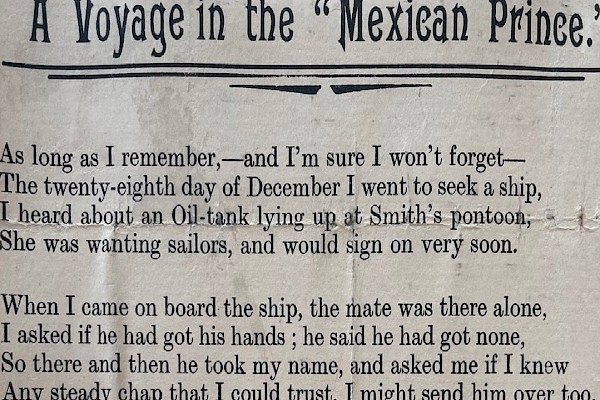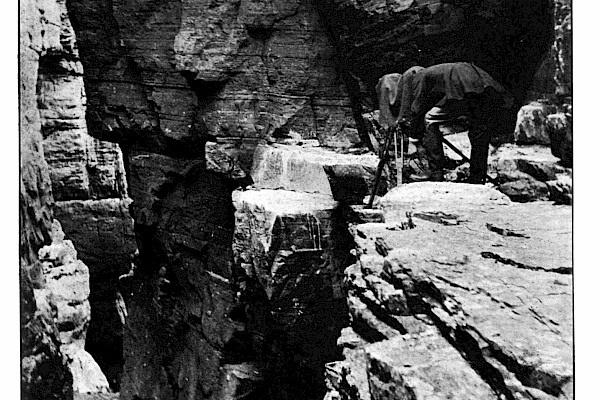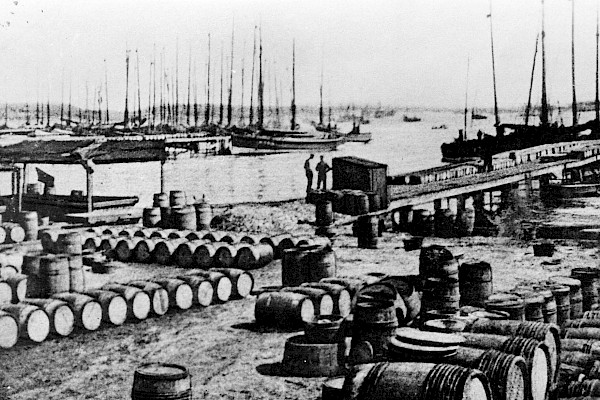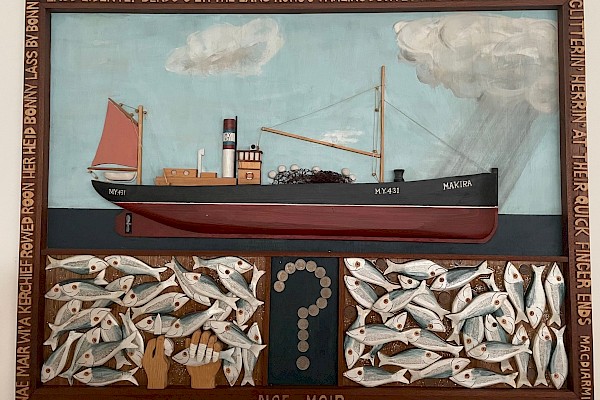The hundredth birthday of John Alexander Cruickshank
Today, a rather special one, John Alexander Cruickshank, has his hundredth birthday. He is now the last living Victoria Cross holder to have been awarded the medal during World War Two. A pilot in the RAF during WW2 he flew out of Sullom Voe. In July 1944 he flew a successful mission to sink a U-Boat west of Lofoten – he flew his crew home having sustained 72 wounds to his person.
During World War Two RAF Coastal Command had an extensive flying boat base at Sullom Voe. It was an important part of the Battle of the Atlantic, involving a large number of men and women, and equipment. For the aircrew, it was a taxing operation, long ocean flights, often in poor conditions. The aircraft were noisy, and in modern terms, uncomfortable. Few of the people who served there remain alive. Today, a rather special one, John Alexander Cruickshank, has his hundredth birthday.
John Cruickshank came from Aberdeen, lived part of his young life in Edinburgh, and before the war had begun a career with the Commercial Bank of Scotland. He entered the RAF, training in Canada and the USA. By July 1944 he was an experienced pilot, flying Consolidated Catalina flying boats. The Catalina was an obsolescent but still effective aircraft, slow, but with a long range, very useful for the North Atlantic.
On the 17th July 1944 he was a 24 year old pilot flying Catalina JV928/Y on his 48th sortie. One of the crew, Flight Sergeant Fidler was on his first. When they were nearly 300 miles west of Lofoten the Catalina picked up a radar contact. Moving in, they fired recognition flares and got a barrage of anti-aircraft fire in return. It was nearly 10 pm. An attempt to drop depth charges at 50 feet failed, and Flight Lieutenant Cruickshank took his aircraft round again, against a now prepared and determined U-Boat crew.
This time the depth charges successfully straddled the enemy and sank it. This was U-361, 52 crew. The doomed U-Boat gunners succeeded in damaging the Catalina, starting small fires, and wounding the crew. Navigator Flying Officer John Dickson died. His wife had a baby a month later. F/Sgt Appleton dressed the crew’s wounds, including the wounded hand of the second pilot, F/Sgt Garnett, before realising how badly hurt Flight Lieut. Cruickshank was. He collapsed and had to be taken aft for treatment. He revived and insisted on going back to the cockpit, taking the second pilot’s seat.
F/Sgt Fidler took over navigation, calculating a five hour flight home, but expecting to ditch first as fuel consumption was too high. In fact, damage to the Catalina’s instruments had caused an error in the calculation, and the Catalina made it back to Sullom Voe. John Cruickshank remained in command and refused pain-killing morphia as it diminished alertness. Once in the vicinity of the base he waited another hour for light before landing. A leaking Catalina had to be beached.
The doctor at Sullom Voe found 72 wounds on John Cruickshank, among them two in his lungs, and ten in his legs. He had an immediate blood transfusion and transferred to the hospital in Lerwick in the then Anderson Institute building, before being sent south. The Institute wasn’t a stranger to Coastal Command aircrew. In June 1944 the remains of Flight Lieutenant David Hornell, V.C. had lain there.
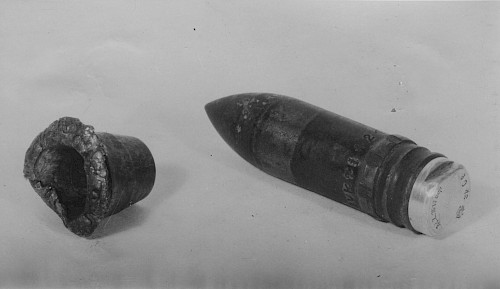
U-boat Ammunition, portion on left removed from F/L Cruikshanks body. Photo Archive No. 02580
John Cruickshank recovered despite everything, but didn’t fly operationally again. On 21st September 1944, he got the Victoria Cross from King George VI at Holyrood Palace. F/Sgt Garnett got a DFM. The King asked Cruickshank how he was. “I am still a bit weak,” he said. The Aberdeen Press and Journal said he was “exceedingly modest and averse to talking about his exploit.”
John Cruickshank remained that way. VE Day was only recently, and his one hundredth birthday is another important reminder of the generation who gave so much, and pressed on so determinedly. He didn’t seem to expect reward. The first thing he asked for after regaining consciousness on the aircraft was his crew. In 2004 he told the Queen “Decorations didn't enter my head.” After the war he returned to his career in banking. He is now the last living Victoria Cross holder to have been awarded the medal during World War Two.
 We hope you have enjoyed this blog. We rely on the generous support of our funders and supporters to continue our work on behalf of Shetland. Everything we do is about caring for Shetland's outstanding natural and cultural heritage on behalf of the community and for future generations. Donations are welcomed and are essential to our work.
We hope you have enjoyed this blog. We rely on the generous support of our funders and supporters to continue our work on behalf of Shetland. Everything we do is about caring for Shetland's outstanding natural and cultural heritage on behalf of the community and for future generations. Donations are welcomed and are essential to our work.
